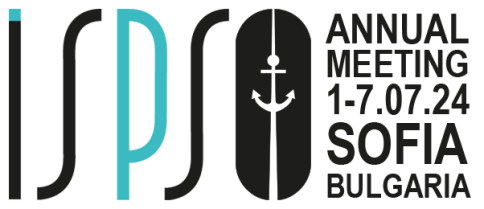Online Conference 5-11 July 2021

The Organising Committee and the ISPSO Board are pleased to invite ISPSO members and non-members from all countries to join
the ISPSO 40th Annual Meeting & Symposium in Sofia, Bulgaria.
The conference runs from 1 to 7 July 2024 featuring:
Professional Development Workshops: 1-3 July
Members' Day: 4 July, and Annual Symposium: 5-7 July. See the Program Schedule for a full list of events.
In pluralizing Freud’s title word “civilization”, we emphasize that we live in a world where multiple civilisations compete for ideologies, power, resources and territory. Whilst these conflicts are most visible in the international arena, similar dramas are playing out in organizational contexts. The fundamental context for living and working has changed. The Covid 19 pandemic, the increasing urgency of climate change, mass refugee migrations and the loss of the dream of geopolitical stability at a global level have all contributed to this pervasive disruption. Because of these seismic shifts, the underpinning context for organizational work has changed.
Radical differences challenge our capacity to act in civilized ways when there is no means to process and digest the fear, anger and anxiety that emerge when civilizations clash. Whilst it is easy to identify inter-national clashes, it is more difficult to own and digest the radical clashes that occur in everyday life, including within and between nations, organizations and communities.
A turmoil of hope and fear churns through our lives as we experience radical disruption to many of our previously taken-for-granted patterns, routines and expectations. Can we learn, or perhaps re-learn, how to think together in a way that is embodied, intuitive, relational and emotionally congruent, whist still being purposeful? What else do we need to discover, re-discover and mobilize in order to thrive in a world of multiple civilizations and their discontents?
Therefore, what questions should we be asking about our psychoanalytic study of organizations?
The questions below are offered as starting points:
Martin Ringer, AM 2024 Co-chair
Antoaneta Mateeva, AM 2024 Co-chair